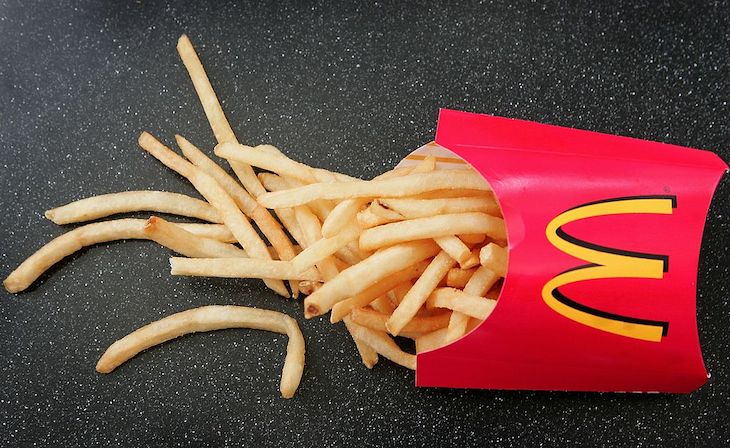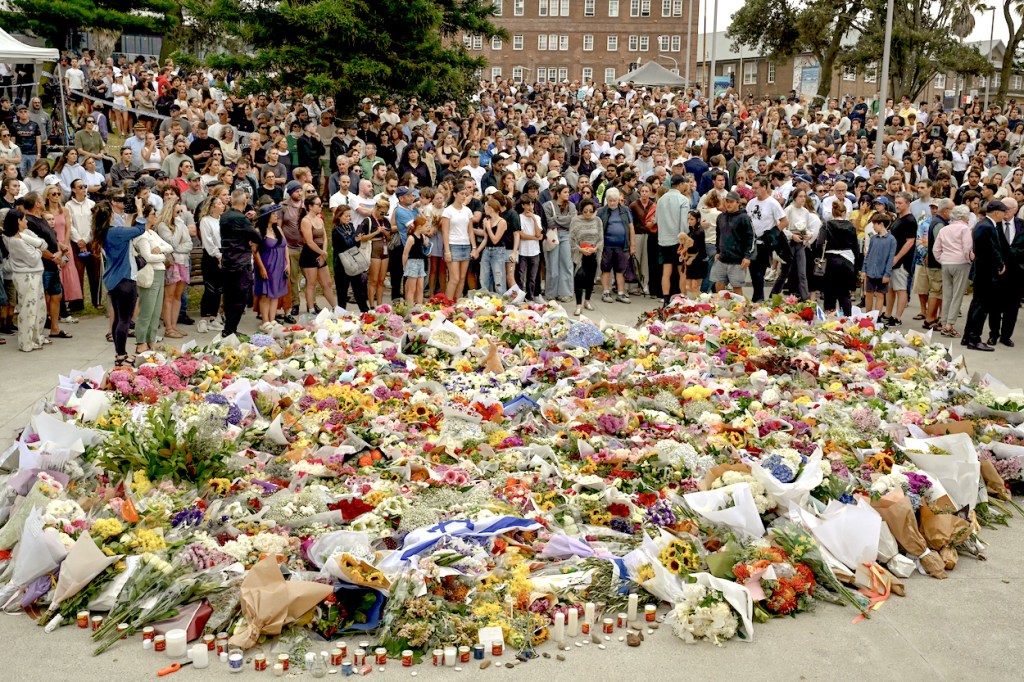The news that McDonald’s sales have fallen by 1 per cent around the world between April and June might not seem, on the face of it, to be vastly significant. After all, surely there will always be a market for cheap and cheerful hamburgers, chicken nuggets and chips that even Michelin-starred chefs rave about? Apparently not. Ever since the pandemic, when there was a considerable rise in prices, the lustre has gone off the golden arches, and profits have declined by 12 per cent. There have been calls for ‘value added’ innovations, such as the current ‘buy three items for £3’ deal, but, as one McDonald’s executive helpfully put it, saying the quiet part out loud: ‘Consumers are being more discerning about where, when and what they eat, and I would say we don’t expect significant changes in that environment for the next few quarters.’
McDonald’s is a grim, frenetic place where everybody looks both unhappy and unhealthy
When I was growing up in Bristol in the Eighties, visiting the McDonald’s in the city’s main shopping centre was a treat reserved for occasional Sundays, and I used to relish every moment of it. The cheeseburger, complete with the obligatory slice of gherkin – my first introduction to that unsung hero of the pickle fraternity – was always the perfect mixture of beefy goodness and tangy ketchup, complete with the obligatory slice of processed cheese. The fries were every bit as good as everyone has always said, firm and crisp and moreish, and a strawberry milkshake on the side turned the whole thing into a satisfying meal. Was it remotely healthy? Of course not. Rumours circulated as to the provenance of the beef, the milk in the milkshake, even what the chips were made out of; I was informed that they had to be called ‘French fries’ not ‘potato chips’ because they, in fact, contained no potato. Of course it was nonsense but, anyway, I didn’t care. I lapped up every visit I ever made to McDonald’s as a child, and then as a teenager, and I regret none of it.
Yet fast food dining in Britain is a very different beast, no pun intended, to what it was like three decades ago. The once-maligned burger has found countless upmarket outlets to sell it, many of which have foundered because they were too expensive. In my home city of Oxford, I mourned the recent loss of the excellent Tommi’s Burger Joint, the only place I knew that served béarnaise sauce on the side with your burger and fries. I was less sad at the end of our local Byron, a once-magnificent group that swiftly declined when it expanded too fast. But it would no more occur to me to visit my local McDonald’s – a grim, frenetic place where everybody looks both unhappy and unhealthy – than it would to order a tofu salad with added quinoa. That time is well and truly past.
There have been occasional attempts by the company to go upmarket, such as the introduction of the would-be exclusive ‘Signature Collection’. This boasted supposedly higher-quality burgers in packaging designed by the appropriately named Julien Macdonald: a man whom I can no more imagine eating in a McDonald’s than I’m likely to see Anna Wintour enthusiastically tucking into a Filet-O-Fish at my local Maccy D’s. These have not endured, due to poor sales. Most of their patrons are not interested in attempts to compete with the hipper likes of Burger & Beyond or Black Bear Burger. Instead they want familiarity, decent quality and good value. As McDonald’s own executives have admitted, you may still find the first, but the second is debatable and the third is, increasingly, a thing of the past.
What can be done? Short of rebranding the company as a retro delight – self-consciously returning to a heyday that may well have ended before I started ever visiting McDonald’s – there does not seem any obvious solution other than cutting prices, hoping that comfort and convenience outweigh people’s desire to try something new and trusting that brand loyalty will win through in the end. I remain unconvinced that this is really going to happen.
My eight-year-old daughter is surely the target market for McDonald’s; an enthusiastic connoisseur of YouTube and children’s television, she is bombarded with adverts for the company’s wares on a daily basis. Yet when I asked her whether she’d like to go there for an annual treat, she wrinkled up her nose and said: ‘I don’t know what’s in the burgers, dad. Can we go to Shake Shack instead?’ If the likes of Rose Larman are lost, then there may be less hope for this once-ubiquitous institution than its desperate executives imagine.







Comments